This post may contain affiliate links. If you make a purchase through a link, I may receive a small commission, at no cost to you. These commissions help keep this website up and running, and I thank you for your support. Read my full disclosure here.
My aim this year has been to try and find as many easy eco-friendly swaps as I can in and around the house. What I’ve loved most about this experience so far, is that it has not only reduced my household waste and reliance on plastic, but it has also saved me lots of money. Some items have cost me a little more upfront, but because they are reusable and not single use, I have made my money back after a few months. And the crazy thing is, it really hasn’t created the inconvenience in my life as I thought it might. If anything, it has enabled me to discover some really great products, ones that are even better than I was using before, all whilst reducing my carbon footprint.
I’ve also fallen in love with using non-toxic cleaning products. I used to think that you needed harsh products like bleach to get things really clean around the house. However, I’ve discovered that non-toxic products from trusted and popular brands like Seventh Generation and Ecover perform just as well, if not better. Using these products is not only better for the environment, but also for my health.
[icon name=”lightbulb-o” class=”” unprefixed_class=””] Tip
- Find out if you have a zero waste grocery store in your area. These stores are completely devoid of any form of plastic or other packaging waste.
- Extend your eco-friendly approach to your gift giving by using my Eco-friendly Gift Ideas.
Kitchen
Straws: I am so glad for the recent pressure on businesses to swap plastic straws for biodegradable paper straws. However, I would prefer that people did away with straws altogether because I think we can easily live without them. However, if you must have a straw, then consider purchasing steel straws that can be washed and reused. I like this set of stainless steel straws because they are dishwasher safe and come with a handy brush to clean the inside.
Foil and Baking Paper: When it comes to baking food on a tray, swap baking paper or foil for reusable silicone baking mats. I love that they can be washed in the dishwasher. These non-stick baking mats also enable healthier cooking as you don’t need to add oil.
Reusable Kitchen Roll: Swap your paper kitchen towels with this reusable kitchen roll. These 100% cotton cloth wipes are washable and are perfect for wiping up spills, cleaning surfaces. They can also be used as napkins. These reusable kitchen rolls will save you money.
Food Packaging and Storage
Plastic Wrap: I’ve been working hard to eliminate as much plastic around my home as possible. It’s been difficult, and one of the items that has bothered me the most is plastic food wrap. I use a lot of it and I cringe every time. So I started looking for eco-friendly alternatives and came across these waxed, reusable food wrap cloths that are on the market. However, with a little bit of effort, you can make lots of your own reusable food wraps in a variety of sizes for yourself, your family, and friends for a fraction of the price. Follow the directions on my post How to Make Your Own Eco-Friendly, Reusable Waxed Food Wraps. I’ve also included a vegan version.
These waxed wraps can’t be used for raw meat, so when I store meat in the fridge on a plate or bowl, I just cover it with another plate or bowl on top of it upside down. However, these waxed food wraps are really good for wrapping up bread and sandwiches and I also cut smaller sized wraps to package snacks like nuts and cheese.
Food Containers: When it comes to food containers, swap your plastic containers to glass containers. The most cost effective way to purchase glass containers is to buy a multi-set like this glass container set with 9 containers with lids of various sizes. However, I know that these glass containers can be quite heavy if you are having to carry them around, and there is always the risk of them breaking, so generally if I’m packing a lunch bag I’ll use a stainless steel lunch box instead.
When it comes to storage in your pantry, I love to save old jars of various sizes (my husband calls me a jar hoarder) to store dry foods like rice, lentils and breadcrumbs. But if you want something a bit more up-class, then buy some mason jars which look attractive and are also sturdy and easy to open and close. It’s cheaper to purchase a set of them like this set of mason jars.
Bottled Water: Bottling water releases 2.5 million tons of carbon dioxide into the atmosphere annually and takes 17 million barrels of oil to produce a year’s supply. That’s enough oil to fuel 1.3 million cars for the year or power 190,000 homes. Many people are in the habit of buying bottled water. I appreciate that if the water out of your tap is not very tasty or clean, why you might do this. But consider purchasing a water filter instead. It will save you a lot of money as well as benefiting the environment. For small households, this 5 cup Brita water filter is perfect. However, for larger households, you can get a larger 10 cup Brita water filter, or really big 18 cup capacity Brita filter with a handy spigot that makes pouring easy. However, if it’s just that you like cold water, then buy some glass water storage bottles that fits easily into the fridge door.
Drink Bottle: I used to use a reusable plastic bottle, but then I came upon the sorry sight of a cow chewing on a plastic drink bottle whilst hiking through some fields. Apparently cattle chew them because the plastic can taste sweet or salty. If you are still drinking from a plastic drink bottle, then make the swap to a stainless steel drink bottle.
Coffee Mug: Firstly, if you are using coffee pods, then please stop now. They create a massive amount of waste. If you love to indulge in a take-away coffee, then swap the disposable cup for a reusable one like this bamboo travel mug. It is dishwasher safe and will last for years, however, when buried it is biodegradable. These days many cafe’s even offer a discount to encourage customers to bring their own mugs. It can be a bit awkward trying to carry around a large reusable mug, so get yourself one of these collapsible reusable coffee mug.
Tea Bags: Did you know that some tea bags contain plastic? They use polypropylene to keep the tea bags from falling apart. When purchasing your tea bags check if they are plastic free. Or skip the teabags entirely and swap them for a reusable stainless steel tea infuser. Once steeped, flip the lid upside down and sit the infuser onto it to so no mess. It’s also dishwasher safe. If you prefer a tea pot then go for this gorgeous ceramic teapot with a stainless steel lid and infuser. They come in a variety of colours.
Grocery Bags: Nearly 90% of the debris in our oceans is plastic. A plastic bag can take between 400 to 1,000 years to break down, and as it does, the plastic particles contaminate soil and waterways where animals ingest them. These fish then enter the food chain where we end up eating them. Most countries have at least put in place a plastic bag tax as a disincentive for using plastic bags. More progressive countries have banned them altogether. Make the swap to cotton canvas reusable shopping bags.
There is nothing more frustrating than forgetting your grocery bag, so invest in a reusable, compact shopping bag that you can slip into your pocket or handbag. I love the colours and patterns that these bags come in.
Kitchen Waste
Compost: Instead of just throwing out your food scraps, reduce landfill by composting it. If you enjoy gardening, then you will have an endless supply of free compost to feed and nurture your garden. We used the worm compost bin. You might expect it to stink, but it really doesn’t. In fact, if it smells, it usually means you are doing something wrong. There are other composter options including the tumbler bin compost.
Because you don’t want to be taking your scraps out to the bin all the time, you can get a kitchen compost bin that can store your scraps for the week without attracting flies or bad smells into your home. The charcoal filters trap and control odours naturally so you can keep the compost bin in a handy place like your kitchen counter until the bin is full.
Rubbish Bags: Swap your usual plastic rubbish bags for biodegradable rubbish bags. They may not be as strong as plastic bags, but I have not had any issues with these bags splitting or breaking as they seem a bit tougher than other biodegradeable rubbish bags on the market.
Kitchen Cleaning Products
Kitchen Paper Cloths and Sponges: To reduce the amount of kitchen paper towels that you use and cloths that you just throw out after a few uses, swap them for some sturdy reusable, washable kitchen cloths. A good kitchen cloth should be able to remove dirt and grime without needing cleaning products. I love these 100% cotton dish cloths. They perform well in the kitchen for mopping up spills, wiping down benches and for washing dishes. When they need cleaning, I just throw them in the wash with my bathroom towels.
If you prefer a kitchen sponge cloth instead, then swap your usual sponge for these biodegradable sponge cloths that are made with cellulose and cotton.
Kitchen Brush: If you prefer to wash your dishes using a brush, then swap your old plastic kitchen brush with this Full Circle Bubble Up Ceramic Soap Dispenser and Dish Brush with Bamboo Handle. It has a clever spring that helps to create foam. When the long lasting brush eventually wears out, you can just replace the brush head.
Kitchen Spray: If you like to use a kitchen spray, then swap your current one for a non-toxic one. I love Seventh Generation products and they sell an all-purpose spray cleaner that performs well in the kitchen. I also love the Ecover range, and their Multi All Purpose Cleaner performs equally well.
Dishwashing and Dishwasher Detergent: The key ingredient to avoid in detergents is phosphates. When used in dishwasher detergents, phosphate helps to remove food and grease, reduce spotting and filming, control water hardness and suspend food particles so they are not redistributed on your dishes. However, it adds high levels of phosphate in our waterways, which affects the quality of water, killing aquatic life and affecting the taste of our drinking water.
Seventh Generation’s range of detergents is biodegradable and contains no dyes or synthetic fragrances, and is free of chlorine bleach and phosphates. Their range includes dishwasher detergent gel and dishwasher tablets.
Ecover also sell all-in-one dishwasher tablets and washing up liquid, which are biodegradable.
Bathroom
Razor: Unfortunately, all modern razors are made with plastic, so swap your current razor for an electric shaver. They are much faster to shave with and more convenient. Men – try the very popular and highly rated Panasonic Arc5 Electric Razor with five blades, which can be used wet or dry. For women – try the Remington Smooth & Silky Smooth Glide Rechargeable Shaver, which is highly rated by users.
The other alternative is to go old fashioned and return to the original safety razor, which has regained popularity again.
Toothbrush: Almost 50 million pounds of plastic toothbrushes make it to our landfills every year. All that plastic can take up to 1,000 years to decompose and can even leak pollutants into the surrounding soil and water. Swap your plastic toothbrush for these bamboo toothbrushes. The brushes are numbered so you can easily tell them apart.
Tooth Floss: Tooth floss is usually made out of nylon and encased in a plastic dispenser. Swap your floss for Dental Lace, a zero waste floss made of 100% silk coated in natural Candelilla wax, which is derived from the leaves of the small Candelilla shrub. The floss is encased in a glass and stainless steel reusable container, so you can just buy replacement floss.
Face Wipes: Did you know that face wipes are non-biodegradable and filling up our landfills? There is also currently a trend for people flushing them down the toilet (when did people start thinking that this is OK?). Not surprisingly, they are blocking sewers and causing disgusting fatbergs (Google this term – I dare you!). Keen to find an eco-friendly, biodegradable version, I’ve spent time trying out the different face wipes available on the market. So check out my post on Review of the Best Biodegradable Eco-Friendly Face Wipes and make the swap.
Cotton Ear Buds: Plastic cotton bud stems are the number one item of plastic, sewage-related debris on our beaches and rivers. Make the switch to biodegradable cotton earbuds. They use cardboard for the stick instead of plastic, or buy yourself a stainless steel ear wax remover.
Micro Beads: Microbeads are tiny particles of plastic used in exfoliating personal care products like face scrubs and toothpastes. Microbeads cause plastic particle water pollution and get eaten by fish which end up being eaten by us. Thankfully, most countries have banned them, so if you haven’t already made the swap, then please do this now! One of my all time favourite face scrubs, which has been around since I was in high school, is St Ives Apricot face scrub, which uses natural exfoliators. Alternatively, have you thought about making your own DIY beauty products using all natural ingredients? Check out my range of DIY homemade beauty recipes.
Body wash: Reduce your plastic wastage by swapping your bottle of body wash for a natural bar of soap in minimal recyclable packaging. To stop it from getting mushy and soggy, use a wooden soap dish. They made a lovely line of handmade 100% vegetarian beauty products, and I love their ‘naked’ packaging.
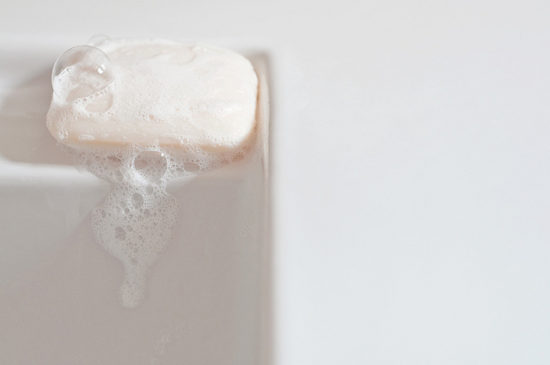
Loofah: Swap your plastic netting loofah for a 100% natural loofah that comes from a plant that when dried makes the perfect luxury skin care sponge.
Sanitary items: Here are some surprising facts. Just one of us will use more than 11,000 disposable sanitary products in a lifetime, and every year over 45 billion feminine hygiene products are disposed of globally. Apparently Ocean Conservancy volunteers collected 27,938 used tampons and applicators on our world’s beaches on a single day! Make the swap to a menstrual cup. Haven’t heard of it? It’s made from soft, medical-grade silicone, and while tampons absorb 35% vaginal moisture, the Mooncup won’t dry you out or leave fibres behind. It also holds 3 x more than a tampon. But one of the best things about using a mooncup is the money you will save on sanitary items.
If menstrual cups aren’t for you then period panties are also becoming very popular. Period panties are ultra thin and comfortable and come in hipster and brief styles.
Bathroom Cleaner: Swap your usual cleaner for the Seventh Generation Cleaner and toilet cleaner that is phosphate free and derived from natural ingredients.
Laundry
Laundry Detergent: As I mentioned above, the key ingredient to avoid in detergents is phosphates as it leads to high levels of phosphate in our water ways which effects the quality of water, killing aquatic life and affecting the taste of our drinking water. Seventh Generation concentrate Free and Clear laundry detergent is great for sensitive skins. It is phosphate free and also free of other nasties commonly found in laundry detergents such as dyes, synthetic fragrances, or optical brighteners. I love the bottle which is made from 70% recycled cardboard and 30% recycled newspaper which you can compost.
Fabric Softener: Not only is fabric softener bad for our waterways, it can shorten the life of your washing machine by creating a slimy build up. It can also affect our health by causing skin irritation and asthma as it embeds itself in the fabric. Make the switch to resuable wool dryer balls. These wool dryer balls are made from organic New Zealand wool (OK, so full disclosure, I am a New Zealander so I may be biased, but I think we have the best wool in the world!) and unlike chemical fabric softeners, they won’t leave any residue on your clothes. These wool dryer balls will save you money as they are reusable and reduce drying time by 20-40% which will reduce your energy bill. If you like the smell that fabric softener adds, then just add some drops of your favourite essential oils to the wool balls and it will pass onto your laundry.
I know that the idea of replacing softener and dryer sheets with some wool balls might sound far fetched, but check out all the great reviews and I’m sure you will be convinced to try them.
Clothing material: Did you know that a 6kg washing load of clothes can result in anything between 137,951 fibres (for polyester-cotton clothes) to 728,789 fibres (for acrylic clothes)? These tiny fibres end up in the ocean as pollution and get ingested by fish, and therefore enter the food chain. To understand the extent of this problem, a city the size of Berlin may be responsible for releasing the equivalent of 540,000 plastic bags’ worth of them into the ocean daily. Make the swap to clothing, bedding and towelling made with natural fibres such as cotton and wool and try to reduce the amount of washing you do by only washing items when they are actually dirty.

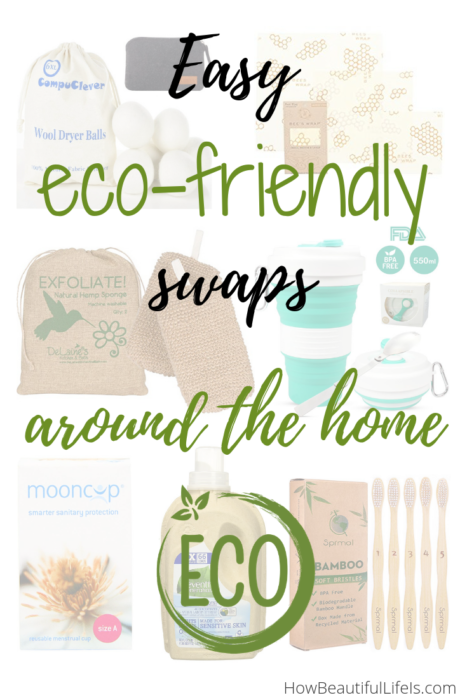
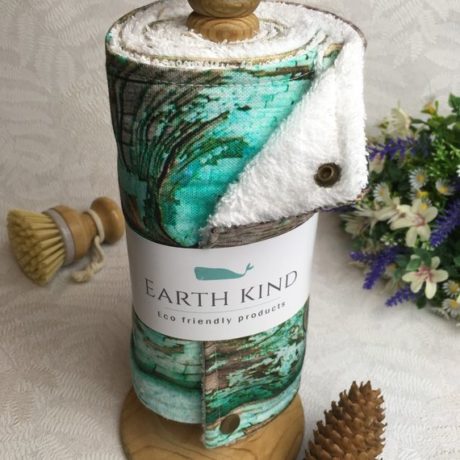
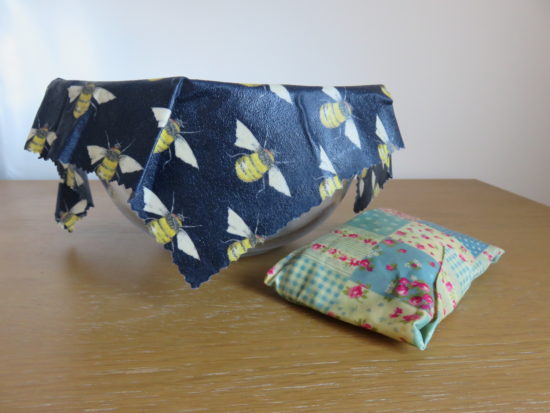
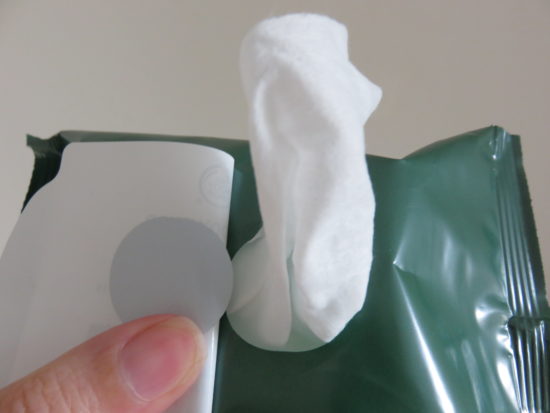
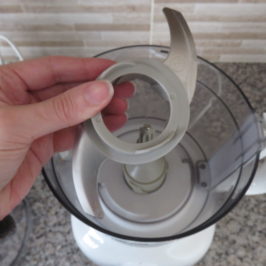
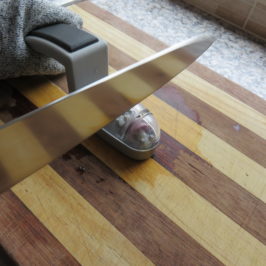
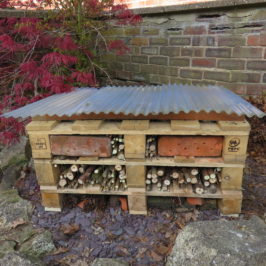
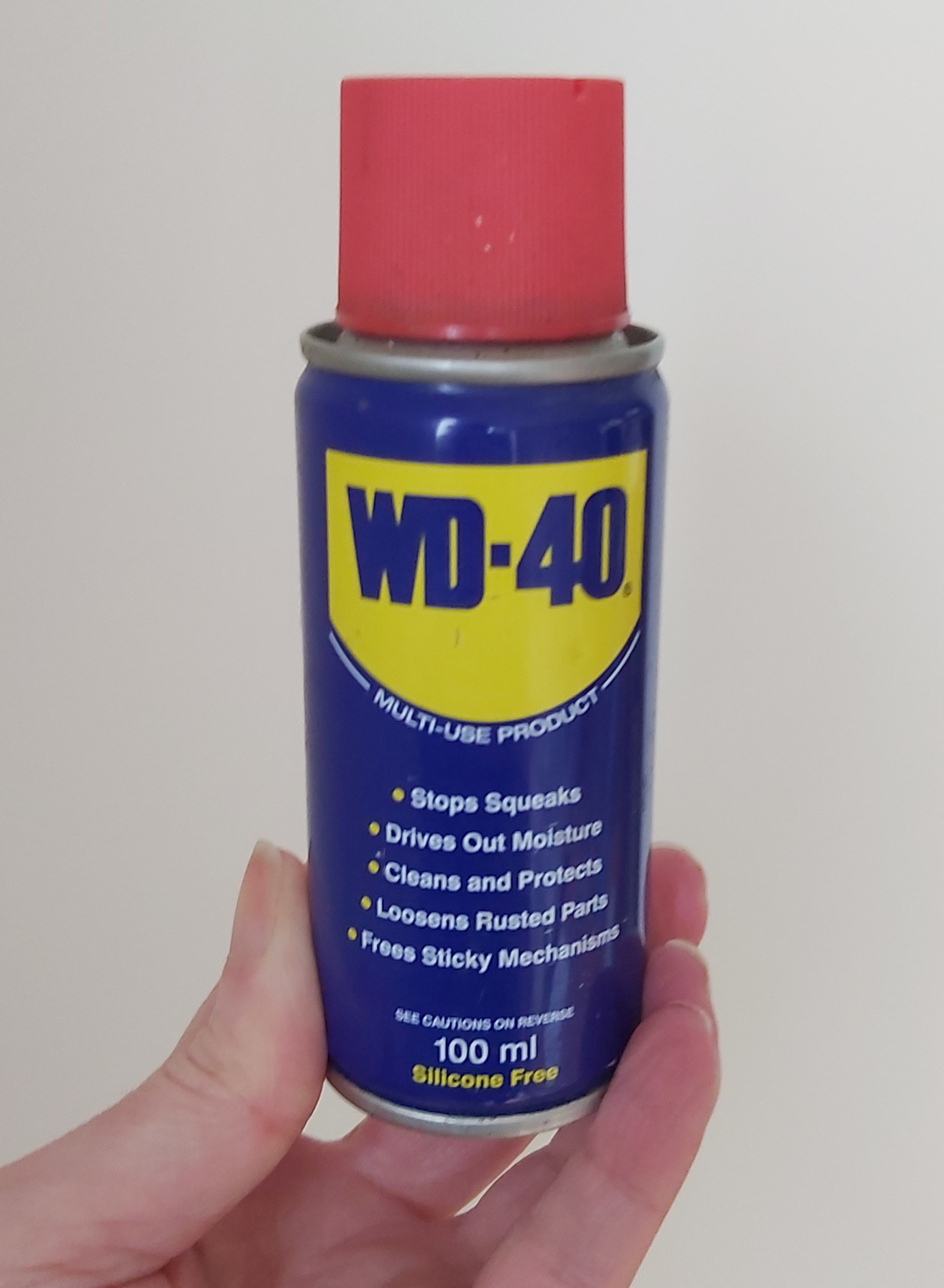
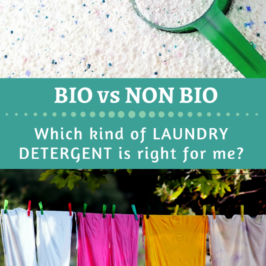
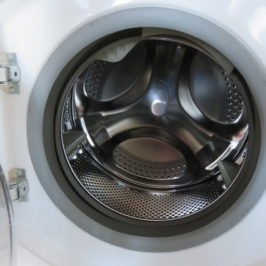
Leave a Reply